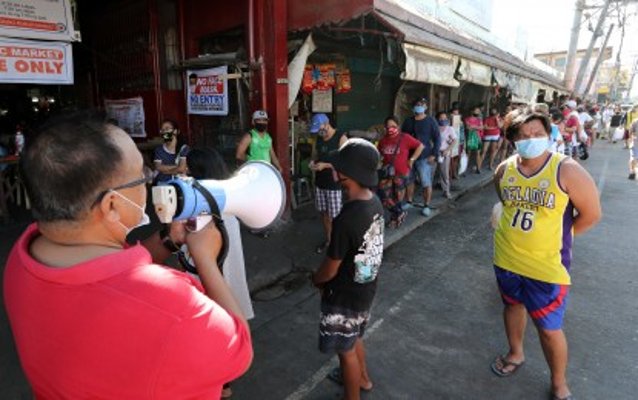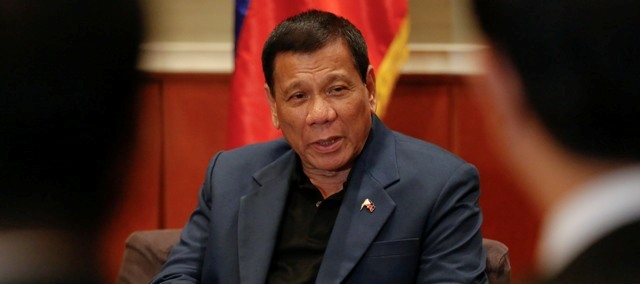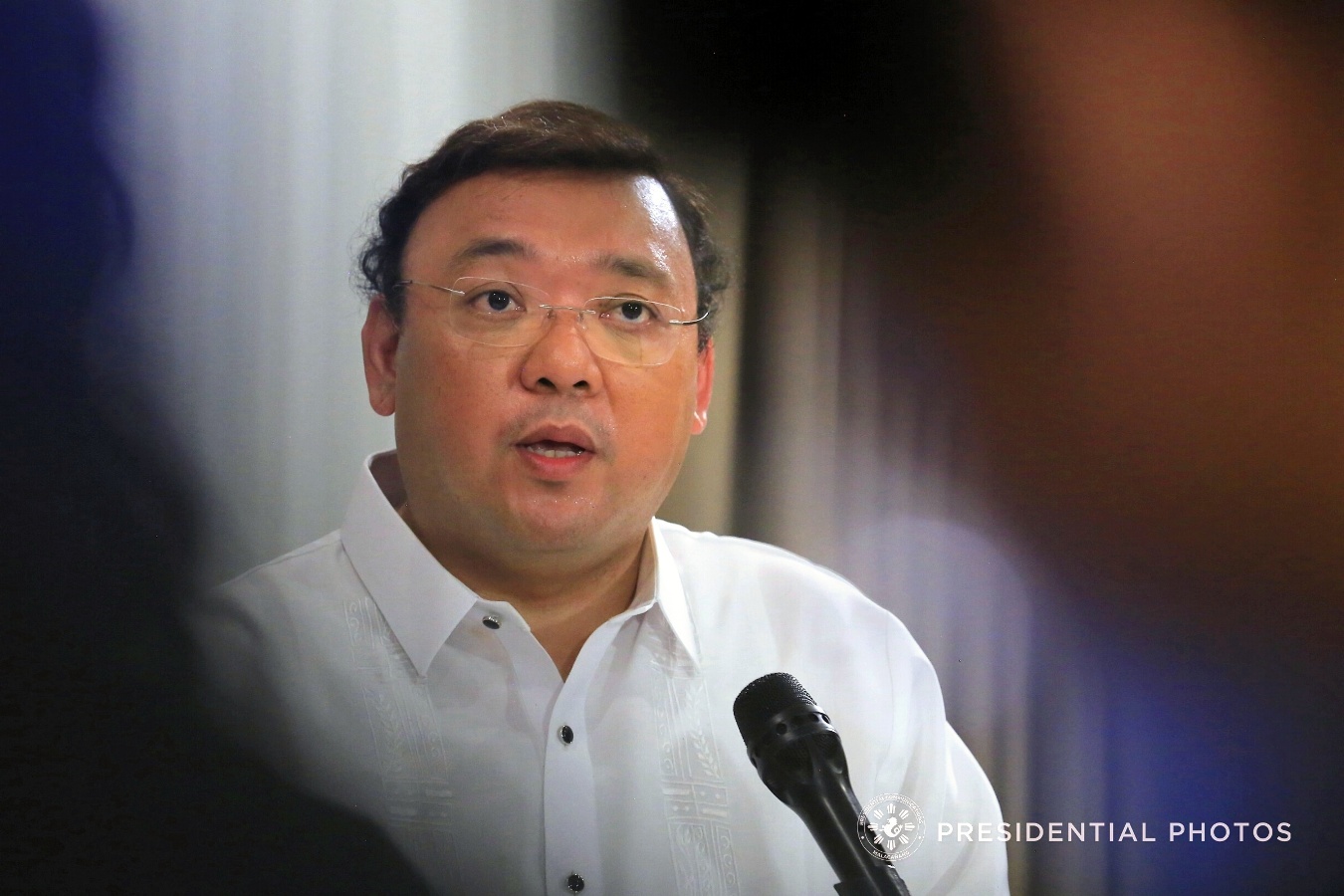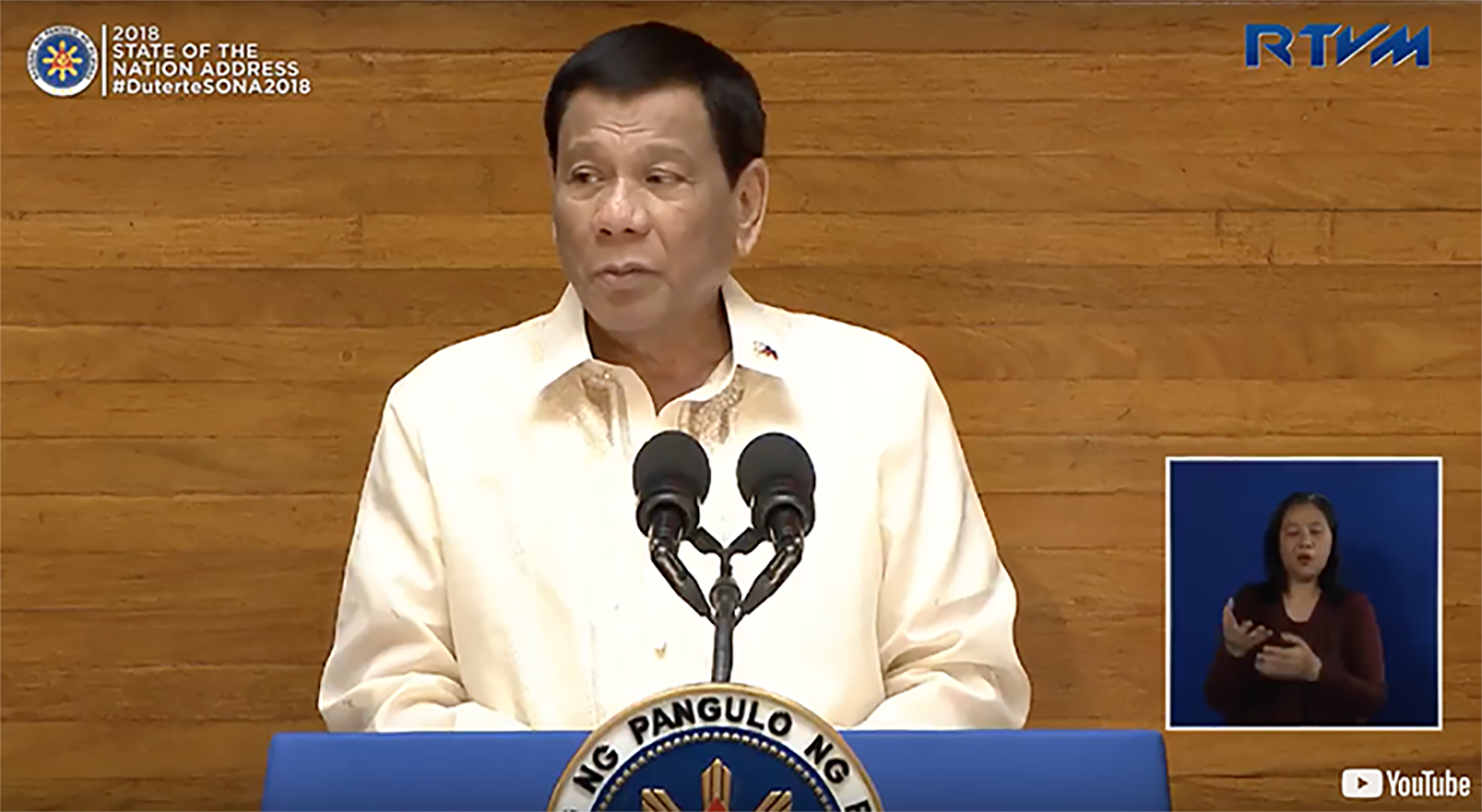In the early months of the coronavirus disease 2019 (COVID-19) pandemic, President Rodrigo Duterte likened corruption and ineptitude to “snatching food from the mouths of babes.”
He promised in his State of the Nation Address (SONA) in July 2020 that “the profiteers, overpricers and corrupt felons… cannot outrun the long arm of the law.”
More than a year has passed and the president seems to have already forgotten about it. Worse, he just read those lines from a prepared speech and did not understand what they meant. Didn’t he say then, “Kung hindi ninyo ako naiintindihan sa binabasa ko, mas lalo ako (If you don’t understand what I am reading, so do I).”
The president’s resort to personal insults in reaction to the Senate Blue Ribbon Committee’s investigation of the P67.32-billion deficiencies in the Department of Health’s spending of the COVID-19 response funds was uncalled-for.
He had commented on the weight of Sen. Richard “Dick” Gordon, chairman of the Blue Ribbon Committee and the hairstyle of Sen. Panfilo “Ping” Lacson in the course of defending two of his former appointees – Chinese businessman and former presidential economic adviser Michael Yang and ex-budget undersecretary Lloyd Christopher Lao – who were implicated in the possibly irregular procurement of medical supplies using the COVID-19 funds.
The Senate probe is looking into a questionable P10-billion deal that Yang’s Pharmally Pharmaceutical Corp. bagged from the Procurement Service of the Department of Budget and Management during the tenure of Lao, who was allegedly a former staff of Sen. Cristopher Lawrence “Bong” Go.
While both Gordon and Lacson have both declared their intentions to seek higher office in the May 2022 elections, the Senate probe still falls within their oversight function, in aid of legislation, which should be encouraged rather than derailed. The President has also accepted the challenge of his partymates to run for vice president while Go has been offered as Duterte’s presidential running mate.
The Senate investigation opens a venue for Yang, Lao and the other persons who may be suspected of involvement in questionable deals to present documents and prove that the transactions were above board. But the efforts from Malacañang to defend Yang and Lao while hurling personal insults on the probing legislators are obvious moves to extricate the former presidential appointees from possible irregularities.
The situation presents a great opportunity for the president to honor his promise that he won’t tolerate corruption among his appointees and his repeated vows to serve the poor. He would be able to show that he’s not protecting the rich at the expense of the poor Filipinos.
Duterte would earn good point if he would allow the Senate investigation proceed unhampered. Better yet, he should order the Department of Justice to conduct its own probe and instruct concerned government agencies to cooperate. If the deals with Pharmally were above board, they should come clean and that would be good for its business.
On second thought, Duterte’s defense of Yang from the issues raised in the Senate probe may have been in pursuit of his other promise in his 2020 SONA to “intensify (government) efforts to help businesses, especially our micro, small and medium enterprises or MSMEs, by providing responsive government assistance and services, capitalization, and business operations support as we adapt to the next normal.”
In that speech, the President also said: “The corrupt, the grafters and the influence peddlers also take advantage of the fear and confusion that the coronavirus generates. The financial and material assistance of the government to the unemployed, the sick and the destitute running into billions of pesos, are not spared from corruption and ineptitude. Even the donations from well-meaning private persons are skimmed before reaching their intended beneficiaries. It is like snatching food from the mouths of babies.”
He added: “The profiteers, overpricers and corrupt felons must be laughing while they stash their dirty money. But not for long. They cannot outrun the long arm of the law.”
The president should take it from Pope Francis, who said in a Mass homily in June 2014 at the Vatican, that the poor pay for the corruption of the political, economic and religious leaders who feel “almost like God.”
“If we talk of politically or economically corrupt people, who pays for their corruption? Hospitals without medicine pay and the patients who don’t get care, the children without education. They are the modern Naboths who pay the price for the corruption of the powerful. And who pays the price for the corruption of a prelate? The children pay, who cannot make the sign of the cross, those who do not know the catechism, who are not taken care of. The sick who are not visited, the imprisoned, who receive no spiritual attention. The poor pay. Corruption is paid by the poor: the materially poor and the spiritually poor,” the Pope said.
Surveys by Transparency International consistently indicate that corruption hits the poor the most. In January this year, the Philippines has fallen further down the bottom half of TI’s Corruption Perceptions Index (CPI) at 115th place out of 180 nations in 2020. This was two slots down from its ranking in 2019. The CPI evaluates countries and territories by “their perceived levels of public sector corruption, according to experts and business people,” the 2020 index report said.
Indeed, corruption is paid for by the poor. Sadly, corruption is committed largely by those who promise to extricate the poor from their sorry economic state.
In every election, candidates take up the welfare of the poor on top of their agenda but conveniently forget about it once elected. It is about time that voters move decisively to hold candidates to their campaign promises and make them accountable for their misdeeds.
The views in this column are those of the author and do not necessarily reflect the views of VERA Files.
This column also appeared in The Manila Times.



